Frequent persons on Slovenia's street signs
countries
50 names / 653 streets
France Prešeren
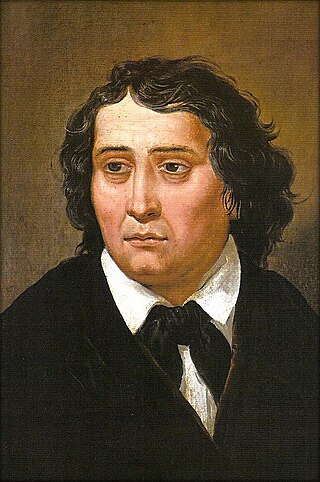 51
France Prešeren was a 19th-century Romantic Slovene poet whose poems have been translated into many languages.
51
France Prešeren was a 19th-century Romantic Slovene poet whose poems have been translated into many languages.
Ivan Cankar
 46
Ivan Cankar was a Slovene writer, playwright, essayist, poet, and political activist. Together with Oton Župančič, Dragotin Kette, and Josip Murn, he is considered as the beginner of modernism in...
46
Ivan Cankar was a Slovene writer, playwright, essayist, poet, and political activist. Together with Oton Župančič, Dragotin Kette, and Josip Murn, he is considered as the beginner of modernism in...
Karel Destovnik
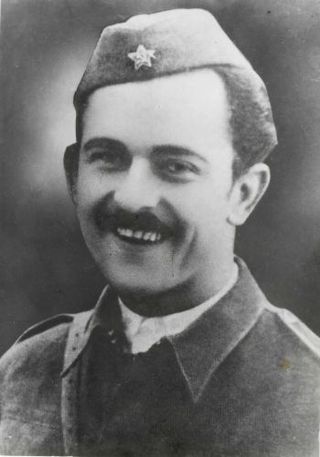 37
Karel Destovnik, pen name and nom de guerre Kajuh, was a Slovenian poet, translator, resistance fighter, and Yugoslav people's hero.
37
Karel Destovnik, pen name and nom de guerre Kajuh, was a Slovenian poet, translator, resistance fighter, and Yugoslav people's hero.
Matija Gubec
 36
Matija Gubec, also known as Ambroz Gubec, was a Croatian revolutionary, and a leader of the Croatian–Slovene Peasant Revolt of 1573. He was part of the court of three people that governed the rebels.
36
Matija Gubec, also known as Ambroz Gubec, was a Croatian revolutionary, and a leader of the Croatian–Slovene Peasant Revolt of 1573. He was part of the court of three people that governed the rebels.
Simon Gregorčič
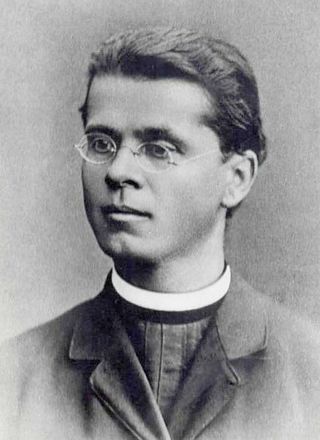 34
Simon Gregorčič was a Slovene poet and Roman Catholic priest. He is considered the first lyric poet of the Slovene realist poetry and the most melodical Slovene poet.
34
Simon Gregorčič was a Slovene poet and Roman Catholic priest. He is considered the first lyric poet of the Slovene realist poetry and the most melodical Slovene poet.
Primož Trubar
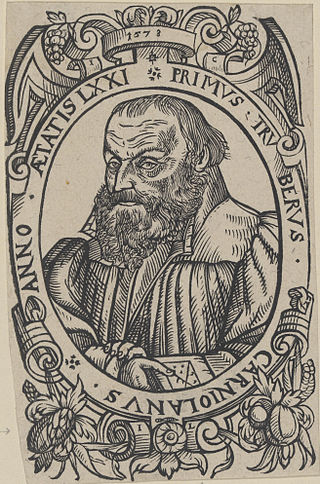 33
Primož Trubar or Primus Truber was a Slovene Protestant Reformer of the Lutheran tradition, mostly known as the author of the first Slovene language printed book, the founder and the first...
33
Primož Trubar or Primus Truber was a Slovene Protestant Reformer of the Lutheran tradition, mostly known as the author of the first Slovene language printed book, the founder and the first...
Boris Kidrič
 30
Boris Kidrič was a Slovene and Yugoslav politician and revolutionary who was one of the chief organizers of the Slovene Partisans, the Slovene resistance against occupation by Nazi Germany and...
30
Boris Kidrič was a Slovene and Yugoslav politician and revolutionary who was one of the chief organizers of the Slovene Partisans, the Slovene resistance against occupation by Nazi Germany and...
Fran Levstik
 30
Fran Levstik was a Slovene writer, political activist, playwright and critic. He was one of the most prominent exponents of the Young Slovene political movement.
30
Fran Levstik was a Slovene writer, political activist, playwright and critic. He was one of the most prominent exponents of the Young Slovene political movement.
Oton Župančič
 27
Oton Župančič was a Slovene poet, translator, and playwright. He is regarded, alongside Ivan Cankar, Dragotin Kette and Josip Murn, as the beginner of modernism in Slovene literature. In the period...
27
Oton Župančič was a Slovene poet, translator, and playwright. He is regarded, alongside Ivan Cankar, Dragotin Kette and Josip Murn, as the beginner of modernism in Slovene literature. In the period...
France Bevk
 24
France Bevk was a Slovene writer, poet and translator. He also wrote under the pseudonym Pavle Sedmak.
24
France Bevk was a Slovene writer, poet and translator. He also wrote under the pseudonym Pavle Sedmak.
Rudolf Maister
 22
Rudolf Maister was a Slovene military officer, poet and political activist. The soldiers who fought under Maister's command in northern Slovenia became known as "Maister's fighters". Maister was also...
22
Rudolf Maister was a Slovene military officer, poet and political activist. The soldiers who fought under Maister's command in northern Slovenia became known as "Maister's fighters". Maister was also...
Anton Aškerc
 21
Anton Aškerc was a Slovenian poet and Roman Catholic priest who worked in Austria, best known for his epic poems.
21
Anton Aškerc was a Slovenian poet and Roman Catholic priest who worked in Austria, best known for his epic poems.
Srečko Kosovel
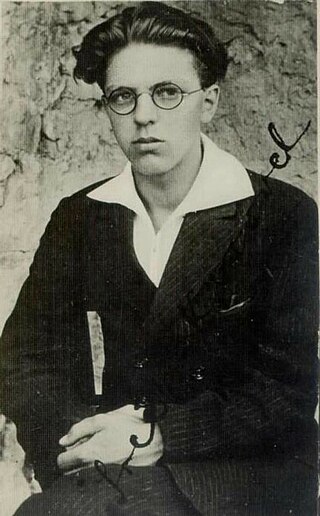 21
Srečko Kosovel was a Slovenian poet, now considered one of central Europe's major modernist poets. He was labeled an impressionistic poet of his native Karst region, a political poet resisting forced...
21
Srečko Kosovel was a Slovenian poet, now considered one of central Europe's major modernist poets. He was labeled an impressionistic poet of his native Karst region, a political poet resisting forced...
Prežihov Voranc
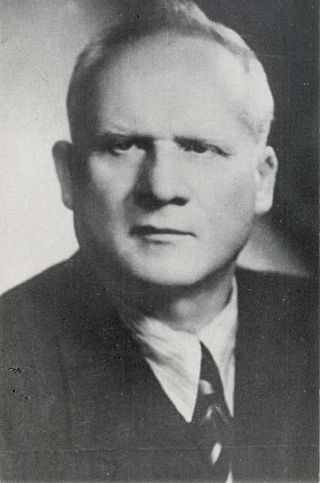 17
Prežihov Voranc was the pen name of Lovro Kuhar, a Slovene writer and communist political activist. Voranc's literary reputation was established during the 1930s with a series of Slovene novels and...
17
Prežihov Voranc was the pen name of Lovro Kuhar, a Slovene writer and communist political activist. Voranc's literary reputation was established during the 1930s with a series of Slovene novels and...
Josip Stritar
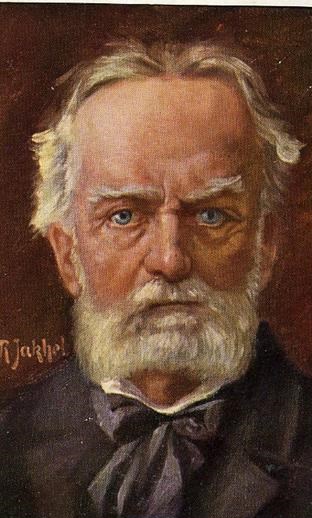 15
Josip Stritar was a Slovene writer, poet, essayist, the first aesthetic critic, playwright, publisher and translator.
15
Josip Stritar was a Slovene writer, poet, essayist, the first aesthetic critic, playwright, publisher and translator.
Fran Saleški Finžgar
 15
Fran Saleški Finžgar was perhaps the most popular Slovene folk writer. He is particularly known for his novels and short stories, although he also wrote poems and plays.
15
Fran Saleški Finžgar was perhaps the most popular Slovene folk writer. He is particularly known for his novels and short stories, although he also wrote poems and plays.
Dušan Kveder
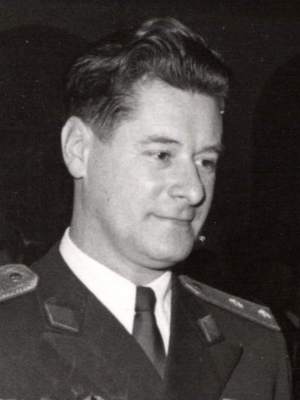 12
Dušan Kveder was a Yugoslav soldier and diplomat from Slovenia who served in a number of official capacities during and after the Second World War, including a term as Military Commander of the Free...
12
Dušan Kveder was a Yugoslav soldier and diplomat from Slovenia who served in a number of official capacities during and after the Second World War, including a term as Military Commander of the Free...
Franc Rozman
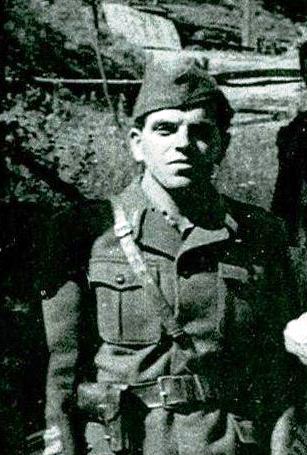 12
Franc Rozman, nom de guerre Stane or Stane Mlinar, was a Slovene Partisan commander in World War II.
12
Franc Rozman, nom de guerre Stane or Stane Mlinar, was a Slovene Partisan commander in World War II.
Ivan Tavčar
 11
Ivan Tavčar was a Slovenian writer, lawyer, and politician.
11
Ivan Tavčar was a Slovenian writer, lawyer, and politician.
Anton Tomaž Linhart
 11
Anton Tomaž Linhart was a Carniolan playwright and historian, best known as the author of the first comedy and theatrical play in general in Slovene, Županova Micka. He is also considered the father...
11
Anton Tomaž Linhart was a Carniolan playwright and historian, best known as the author of the first comedy and theatrical play in general in Slovene, Županova Micka. He is also considered the father...
Dragotin Kette
 10
Dragotin Kette was a Slovene Impressionist and Neo-Romantic poet. Together with Josip Murn, Ivan Cankar, and Oton Župančič, he is considered the founder of modernism in Slovene literature.
10
Dragotin Kette was a Slovene Impressionist and Neo-Romantic poet. Together with Josip Murn, Ivan Cankar, and Oton Župančič, he is considered the founder of modernism in Slovene literature.
Ivan Regent
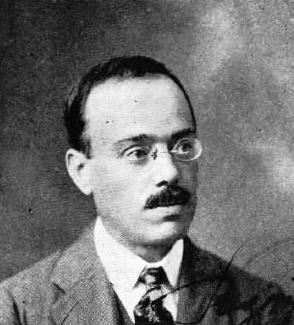 9
Ivan Regent [ívan régent], slovenski revolucionar, publicist in politik; * 24. januar 1884, Kontovel pri Trstu, † 26. september 1967, Ljubljana, SR Slovenija.
9
Ivan Regent [ívan régent], slovenski revolucionar, publicist in politik; * 24. januar 1884, Kontovel pri Trstu, † 26. september 1967, Ljubljana, SR Slovenija.
Miroslav Vilhar
 8
Miroslav Vilhar, slovenski skladatelj, pesnik, dramatik, politik in časnikar, * 7. september 1818, Planina, † 6. avgust 1871, grad Kalec.
8
Miroslav Vilhar, slovenski skladatelj, pesnik, dramatik, politik in časnikar, * 7. september 1818, Planina, † 6. avgust 1871, grad Kalec.
Josip Broz Tito
 7
Josip Broz, commonly known as Tito, was a Yugoslav communist revolutionary and politician who served in various positions of national leadership from 1943 until his death in 1980. During World War...
7
Josip Broz, commonly known as Tito, was a Yugoslav communist revolutionary and politician who served in various positions of national leadership from 1943 until his death in 1980. During World War...
Vladimir Nazor
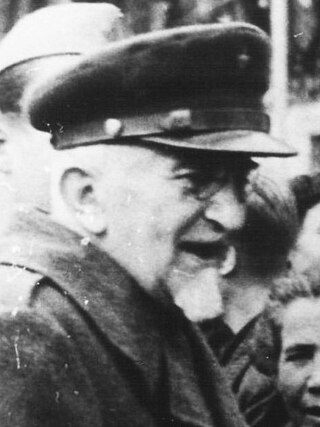 7
Vladimir Nazor was a Croatian poet and politician. During and after World War II in Yugoslavia, he served as the first President of the Presidium of the Croatian Parliament, and first Speaker of the...
7
Vladimir Nazor was a Croatian poet and politician. During and after World War II in Yugoslavia, he served as the first President of the Presidium of the Croatian Parliament, and first Speaker of the...
Nikola Tesla
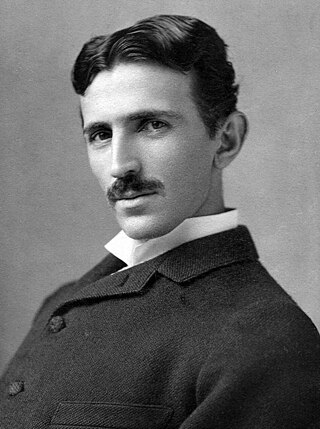 7
Nikola Tesla was a Serbian-American inventor, electrical engineer, mechanical engineer, and futurist. He is known for his contributions to the design of the modern alternating current (AC)...
7
Nikola Tesla was a Serbian-American inventor, electrical engineer, mechanical engineer, and futurist. He is known for his contributions to the design of the modern alternating current (AC)...
Sergej Kraigher
 7
Sergej Kraigher was a Yugoslav communist politician from Slovenia who served as the President of the Presidency of Yugoslavia from 1981 to 1982. During World War II, he fought in the Yugoslav...
7
Sergej Kraigher was a Yugoslav communist politician from Slovenia who served as the President of the Presidency of Yugoslavia from 1981 to 1982. During World War II, he fought in the Yugoslav...
Ante Šercer
 7
Ante Šercer was a Yugoslav physician.
7
Ante Šercer was a Yugoslav physician.
Štefan Kovač
 6
Štefan Kovač, slovenski publicist, pravnik, komunist in narodni heroj, * 28. avgust 1910, Nedelica, Avstro-Ogrska, † 18. oktober 1941, Gančani.
6
Štefan Kovač, slovenski publicist, pravnik, komunist in narodni heroj, * 28. avgust 1910, Nedelica, Avstro-Ogrska, † 18. oktober 1941, Gančani.
Ciril Kosmač
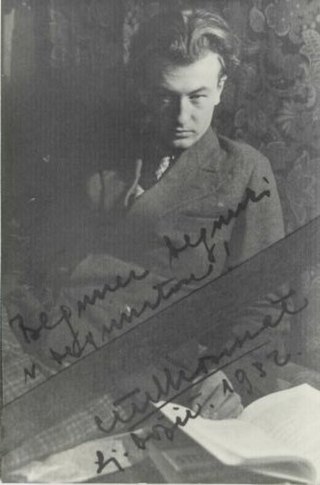 6
Ciril Kosmač was a Slovenian novelist and screenwriter.
6
Ciril Kosmač was a Slovenian novelist and screenwriter.
Tone Čufar
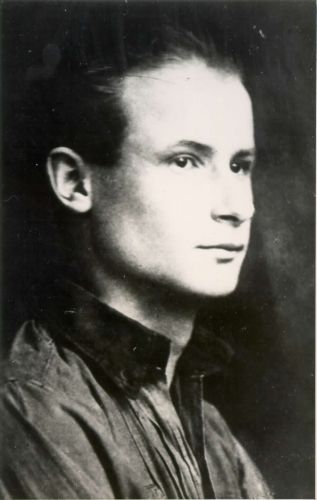 5
Tone Čufar was a Slovene writer, a playwright and a poet.
5
Tone Čufar was a Slovene writer, a playwright and a poet.
Ivan Grohar
 5
Ivan Grohar was a Slovene Impressionist painter. Together with Rihard Jakopič, Matej Sternen, and Matija Jama, he is considered one of the leading figures of Slovene impressionism in the fin de...
5
Ivan Grohar was a Slovene Impressionist painter. Together with Rihard Jakopič, Matej Sternen, and Matija Jama, he is considered one of the leading figures of Slovene impressionism in the fin de...
Pino Mlakar
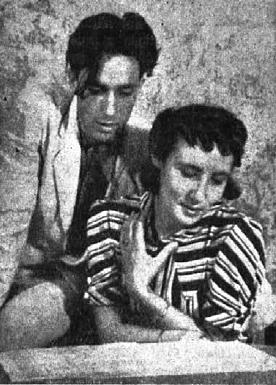 5
Pino Mlakar was a Slovenian ballet dancer, choreographer, and teacher. He was born in Novo Mesto.
5
Pino Mlakar was a Slovenian ballet dancer, choreographer, and teacher. He was born in Novo Mesto.
Johann Weikhard von Valvasor
 5
Johann Weikhard Freiherr von Valvasor or Johann Weichard Freiherr von Valvasor or simply Valvasor was a natural historian and polymath from Carniola, present-day Slovenia, and a fellow of the Royal...
5
Johann Weikhard Freiherr von Valvasor or Johann Weichard Freiherr von Valvasor or simply Valvasor was a natural historian and polymath from Carniola, present-day Slovenia, and a fellow of the Royal...
Peter Pavel Glavar
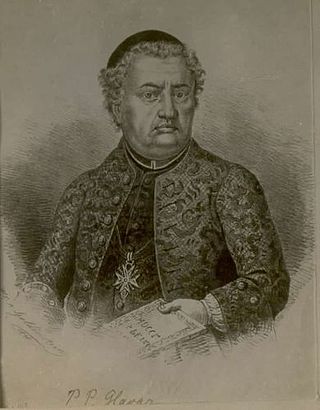 4
Peter Pavel Glavar was a Carniolan Roman Catholic priest, beekeeper, writer, and businessman.
4
Peter Pavel Glavar was a Carniolan Roman Catholic priest, beekeeper, writer, and businessman.
Jože Mencinger
Giuseppe Garibaldi
 4
Giuseppe Maria Garibaldi was an Italian general, patriot, revolutionary and republican. He contributed to Italian unification (Risorgimento) and the creation of the Kingdom of Italy. He is considered...
4
Giuseppe Maria Garibaldi was an Italian general, patriot, revolutionary and republican. He contributed to Italian unification (Risorgimento) and the creation of the Kingdom of Italy. He is considered...
Jernej Kopitar
 4
Jernej Kopitar, also known as Bartholomeus Kopitar, was a Slovene linguist and philologist working in Vienna. He also worked as the Imperial censor for Slovene literature in Vienna. He is perhaps...
4
Jernej Kopitar, also known as Bartholomeus Kopitar, was a Slovene linguist and philologist working in Vienna. He also worked as the Imperial censor for Slovene literature in Vienna. He is perhaps...
Hinko Smrekar
 4
Hinko Smrekar was a Slovenian painter, draughtsman, caricaturist, graphic artist, and illustrator. Smrekar was a member of the Vesna Art Club, which was active in Vienna, and a partisan in the...
4
Hinko Smrekar was a Slovenian painter, draughtsman, caricaturist, graphic artist, and illustrator. Smrekar was a member of the Vesna Art Club, which was active in Vienna, and a partisan in the...
Milan Vidmar
 4
Milan Vidmar was a Slovenian electrical engineer, chess player, chess theorist, and writer. He was among the top dozen chess players in the world from 1910 to 1930 and in 1950, was among the...
4
Milan Vidmar was a Slovenian electrical engineer, chess player, chess theorist, and writer. He was among the top dozen chess players in the world from 1910 to 1930 and in 1950, was among the...
Aleš Bebler
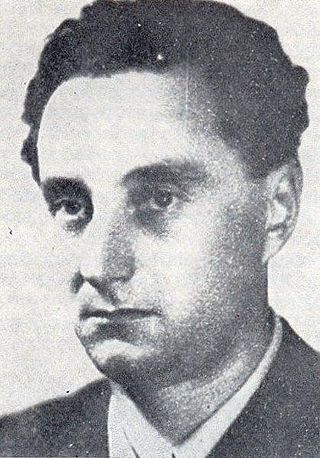 3
Aleš Bebler was a Yugoslav diplomat and a political Commissar. He was a Slovene by ethnicity and was born in Idrija, in the Austro-Hungarian Duchy of Carniola.
3
Aleš Bebler was a Yugoslav diplomat and a political Commissar. He was a Slovene by ethnicity and was born in Idrija, in the Austro-Hungarian Duchy of Carniola.
Leon Štukelj
 3
Leon Štukelj was a Slovene professional gymnast. He was an Olympic gold medalist and athlete who represented Yugoslavia at the Olympics.
3
Leon Štukelj was a Slovene professional gymnast. He was an Olympic gold medalist and athlete who represented Yugoslavia at the Olympics.
Dante Alighieri
 3
Dante Alighieri, most likely baptized Durante di Alighiero degli Alighieri and often referred to as Dante, was an Italian poet, writer, and philosopher. His Divine Comedy, originally called Comedìa...
3
Dante Alighieri, most likely baptized Durante di Alighiero degli Alighieri and often referred to as Dante, was an Italian poet, writer, and philosopher. His Divine Comedy, originally called Comedìa...
Cyril and Methodius
 3
Cyril and Methodius (815–885) were brothers, Byzantine Christian theologians and missionaries. For their work evangelizing the Slavs, they are known as the "Apostles to the Slavs".
3
Cyril and Methodius (815–885) were brothers, Byzantine Christian theologians and missionaries. For their work evangelizing the Slavs, they are known as the "Apostles to the Slavs".
Leo Tolstoy
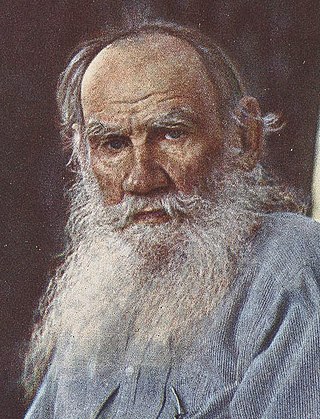 3
Count Lev Nikolayevich Tolstoy, usually referred to in English as Leo Tolstoy, was a Russian writer. He is regarded as one of the greatest and most influential authors of all time. He received...
3
Count Lev Nikolayevich Tolstoy, usually referred to in English as Leo Tolstoy, was a Russian writer. He is regarded as one of the greatest and most influential authors of all time. He received...
Stane Žagar
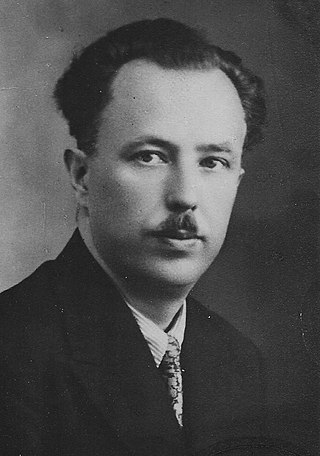 3
Stane (Stanko) Žagar, slovenski partizan, učitelj in narodni heroj, * 19. februar 1896, Žaga pri Bovcu, † 27. marec 1942, Mali rovt nad Crngrobom.
3
Stane (Stanko) Žagar, slovenski partizan, učitelj in narodni heroj, * 19. februar 1896, Žaga pri Bovcu, † 27. marec 1942, Mali rovt nad Crngrobom.
Giuseppe Verdi
 3
Giuseppe Fortunino Francesco Verdi was an Italian composer best known for his operas. He was born near Busseto to a provincial family of moderate means, receiving a musical education with the help of...
3
Giuseppe Fortunino Francesco Verdi was an Italian composer best known for his operas. He was born near Busseto to a provincial family of moderate means, receiving a musical education with the help of...
Tončka Čeč
 3
Tončka Čeč [tónčka čéč], slovenska komunistka, partizanka, prvoborka in narodna herojinja, * 1896, Trbovlje, † 3. november 1943, Auschwitz.
3
Tončka Čeč [tónčka čéč], slovenska komunistka, partizanka, prvoborka in narodna herojinja, * 1896, Trbovlje, † 3. november 1943, Auschwitz.
Fritz Pregl
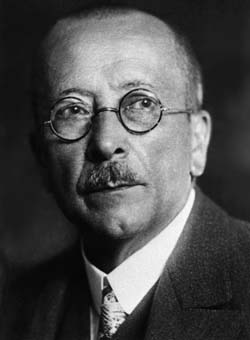 3
Fritz Pregl, was a Slovenian-Austrian chemist and physician from a mixed Slovene-German-speaking background. He won the Nobel Prize in Chemistry in 1923 for making important contributions to...
3
Fritz Pregl, was a Slovenian-Austrian chemist and physician from a mixed Slovene-German-speaking background. He won the Nobel Prize in Chemistry in 1923 for making important contributions to...
Slava Klavora
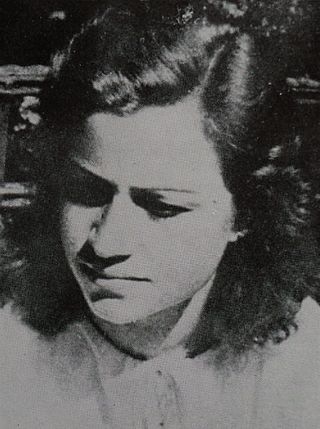 3
Slava Klavora, slovenska narodna herojinja, * 11. maj 1921, Maribor, † 24. avgust 1941, Maribor.
3
Slava Klavora, slovenska narodna herojinja, * 11. maj 1921, Maribor, † 24. avgust 1941, Maribor.